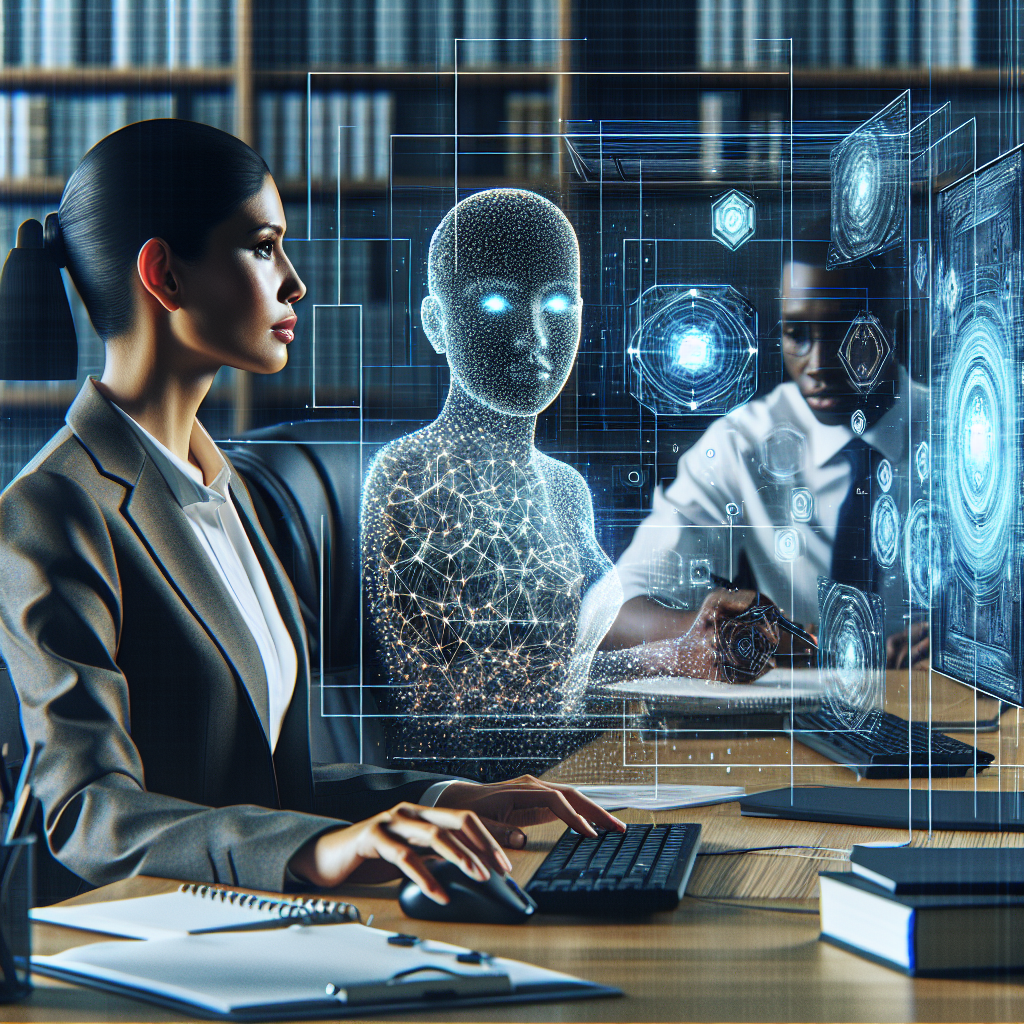
Are you a criminal defense attorney striving to build a formidable case for your clients? Using AI technologies could be your game-changer in the courtroom. Let's explore how leveraging AI can make you not just a better attorney but an exceptional one, revolutionizing your defense strategies.
Artificial Intelligence (AI) is transforming criminal defense in unparalleled ways. With AI tools, attorneys can perform meticulous case analysis, sort through vast amounts of evidence efficiently, and create predictive models that are crucial for successful defense strategies. Imagine AI tools taking mere hours to analyze thousands of documents and predict prosecution tactics.
From high-profile legal firms to savvy independent attorneys, many are embracing AI to fortify their defense strategies. Notable figures and organizations in the criminal defense sector are setting benchmarks with AI utilization. Understanding these trailblazers' methods could give you a competitive edge.
AI's predictive analytics can forecast case outcomes based on historical data, which is invaluable for crafting your defense strategy. Imagine using Meta AI to analyze jury selection patterns and previous verdicts, giving you an uncanny ability to predict the prosecution's moves.
Implementing AI tools effectively can take a few months, depending on the complexity of the systems and your familiarity with them. However, the benefits far outweigh the initial learning curve, providing a significant return on investment in the form of stronger legal defenses.
The time to adopt AI is now. With advancements happening rapidly, by 2025 AI will have more advanced natural language processing capabilities, improved bias detection algorithms, and even more potent predictive analytics.
Human Brain Perspective: AI systems can exhibit biases reflective of their training data. Attorneys must critically evaluate AI outputs to ensure they're not unintentionally reinforcing biases. For example, a predictive model could unjustly determine higher recidivism rates for specific demographics, thereby influencing legal strategies.
It’s also important to recognize that prosecutors can utilize AI similarly to build strong cases, creating a double-edged sword scenario in courtrooms. Defense attorneys must prepare for this AI-driven battle, ensuring they are equally equipped.
By 2025, expect AI tools to be even more advanced, featuring enhanced natural language processing, improved bias detection algorithms, and superior predictive analytics. This will lead to a balanced AI-legal ecosystem where technology and human intelligence coalesce seamlessly.
Understanding AI’s potential and limitations is crucial for effective criminal defense strategies. As the legal industry evolves, the synergy between human expertise and artificial intelligence will redefine courtroom dynamics, transforming defense strategies in extraordinary ways.
The integration of AI in criminal defense will be a significant trend in 2024, parallel to major global events like the 2024 Paralympic Games. Just as athletes leverage technology for peak performance, legal professionals must adopt AI for optimal defense strategies. By 2025, advanced AI tools will revolutionize the field, making justice more precise and effective.
This article is a collaborative effort, co-written by an AI automation initiative and her AI partner, Zacharaiah, providing a predictive look into the future of criminal defense.
Date of Blog Post: 2024-09-08_03-49-18
In 2024, several high-profile topics are making waves in the AI and legal defense sectors. The 2024 Paralympic Games in Paris, Amazon's strategic moves, Kamala Harris' political standing, and the intriguing crossovers like Deadpool and Wolverine are capturing global attention.
By 2025, AI advancements are projected to optimize various fields, including legal defense and major global events. The impact of AI on prosecutorial strategies, election outcomes, and public decision-making will be profound. Keeping an eye on Amazon's continuous innovation, careers influenced by Kamala Harris’ policies, and the legal dynamics around prominent figures like Donald Trump and Taylor Swift will be essential.
Tools like ChatGPT, QuillBot, and Meta AI are not limited to legal defense but are being leveraged by many industries for content generation, data analysis, and predictive modeling. Applications range from the Paralympic Games 2024 analytics to commercial retail strategies involving Costco and product management on Amazon.
As AI technologies advance, ethical considerations become paramount. The ability to discern AI-generated content by tools like the Generative Pre-trained Transformer, OpenAI's Sora, and Grok AI can ensure authenticity and minimize misinformation. Ongoing research and ethical guidelines are critical to maintaining the integrity of AI applications.
For more information on AI advancements and their impact across various sectors, including criminal defense, stay tuned to Criminal Defense AI Online.